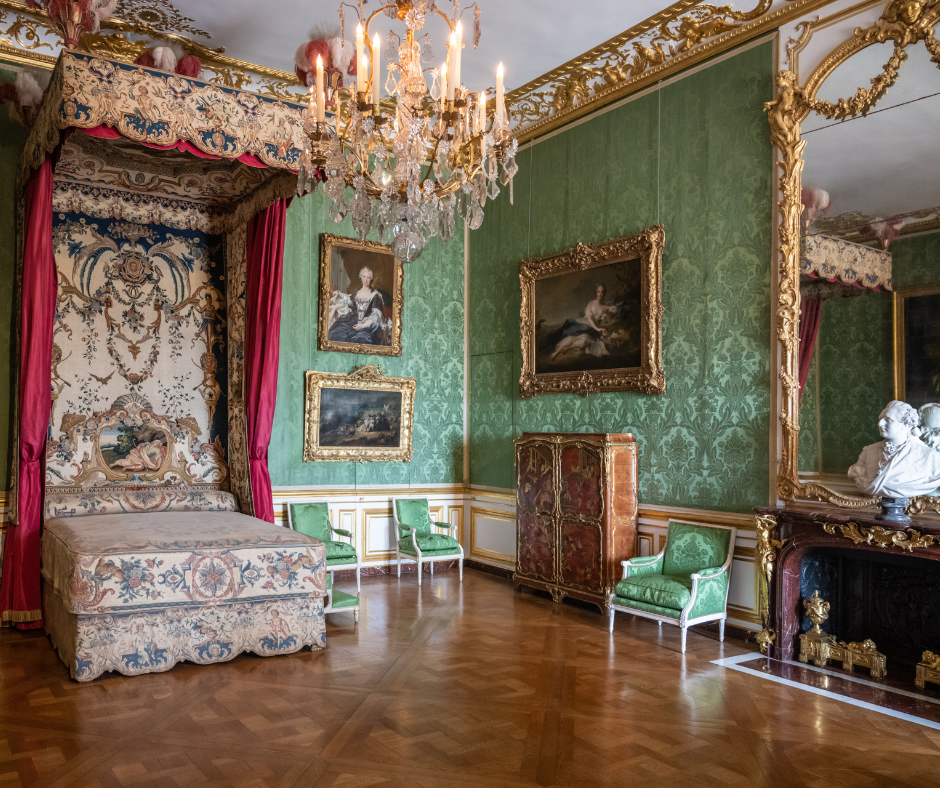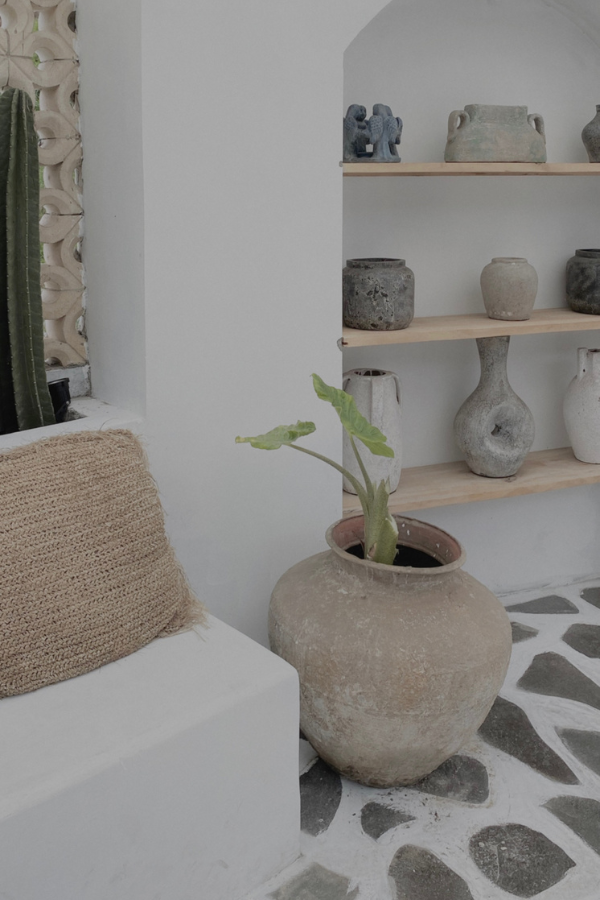

Here’s Where to Get Your Interior Decorating Certificate
Summary
Reflection Questions
Journal Prompt
Are you a student in search of your future career or a woman seeking her mid-career switch? Have you ever looked at a room and dreamed of transforming it? If you have a knack for colors, textures, and design, a career in interior decorating could be perfect for you. An interior decorating certificate opens the door to creating beautiful, meaningful spaces that enhance people’s daily lives. Let’s explore where you can get started on this rewarding path.
What’s the Difference Between an Interior Decorator and an Interior Designer?


The roles of an interior decorator and an interior designer, while closely related and often confused, differ significantly in terms of scope, training, and function. An interior designer is involved in the planning and design of indoor spaces, considering both aesthetics and functionality. They focus on the architecture of a room, including spatial planning and structural aspects.
Interior designers often work closely with architects and contractors to influence the layout of a space, including the placement of windows, doors, and even electrical outlets. Their work requires a good understanding of building codes, accessibility standards, and safety regulations. Educationally, interior designers usually need a degree related to design, and in many countries, they must pass a certification or licensing examination to practice professionally.
An interior decorator, on the other hand, comes into play once the structural work is complete. They focus on the aesthetic enhancement of spaces, choosing color schemes, furniture, textiles, accessories, and lighting fixtures. The main goal of an interior decorator is to create a certain mood or style in a space that reflects the client’s personality and needs. Decorators do not require formal education or licensing; their skill is more about creativity and a keen eye for decorative elements.
Divergence in Educational Pathways


The education paths for interior designers and interior decorators differ significantly, reflecting the scope and requirements of their respective roles. The education for interior designers is more rigorous and structured due to the technical and safety aspects of their work, including knowledge of building codes and structural considerations. In contrast, education for interior decorators is more flexible and focused on aesthetics and personal style, without the need for a formal degree or mandatory certification. Let’s take a closer look.
Interior Designer Education


Most professional interior designers have at least a bachelor’s degree. Common fields of study include interior design, architecture, and environmental design. These programs are usually accredited by organizations like the Council for Interior Design Accreditation (CIDA) in the United States.
The coursework for interior design is comprehensive and includes topics on space planning, materials and finishes, furniture design, building codes, ergonomics, sustainable design, and software for computer-aided design (CAD). Accredited programs often require students to complete an internship, giving them practical experience in the field under the supervision of experienced professionals.
In many states, after completing their education, designers must pass the National Council for Interior Design Qualification (NCIDQ) exam to become licensed. The exam covers a range of topics necessary for safely and effectively designing interior spaces.
Interior Decorator Education


There is no formal educational requirement to become an interior decorator. Many decorators may have degrees in fields like fine arts, graphic design, or even unrelated fields; however, a degree is not mandatory. Those who choose to study interior decorating can take courses that focus on color theory, fabric selection, furniture styles, basic drafting, and the psychology of color and layout. These courses are often available through community colleges, design schools, and online platforms.
While not required, an interior decorator might opt to complete short courses or certification programs offered by various design schools and organizations to enhance her skills and credentials before launching her own interior decorating business. These programs typically focus on design principles and decorating techniques. Upon completion, women could refer to themselves as “Certified Interior Decorators,” however there is no legal requirement for this title.
Still, those who do choose to become a Certified Interior Decorator (C.I.D.) might enjoy reputational gains and access to an important network. Both interior design certification and interior decorating certification help women distinguish themselves in the marketplace.
Licensing Requirements in the U.S. and Abroad


In the United States, many states require interior designers to be licensed or certified to ensure they meet professional standards and are qualified to handle health and safety aspects of design, among other considerations. This usually involves completing an accredited degree program, gaining a certain amount of work experience, and passing the National Council for Interior Design Qualification (NCIDQ) exam. The specific requirements can vary by state, with some states having more stringent regulations than others.
In Europe’s interior design industry, the distinction is similar, but there might be stricter regulations regarding who can practice as an interior designer. For example, many European countries require specific qualifications and registrations to ensure that interior designers are competent in aspects of safety, sustainability, and accessibility, which are governed by local laws and standards. Decorators in Europe, much like in the U.S., do not face these stringent requirements and focus primarily on aesthetics rather than structural changes.
Trade Organizations for Decorators and Designers


Trade organizations play a significant role in someone’s interior design or interior decorating career by providing professional support, education, and certification opportunities. Take ASID and CID, for example. ASID is one of the largest organizations for interior design professionals. It aims to advance the interior design profession and, in doing so, demonstrates the impact of design on the human experience.
ASID offers several membership categories, including Professional, Allied, Associate, and Student memberships, catering to different levels of education and experience. It also provides extensive continuing education opportunities through webinars, conferences, and in-person events. These resources help designers stay current with industry trends and maintain their licensure where required.
Certified Interior Decorators International (C.I.D.) offers a recognized certification that helps decorators prove their professionalism in the industry. Members gain access to various resources, including business forms, marketing tools, and educational materials, which support their professional development and operations. Being a C.I.D. member provides decorators with a form of professional validation that can enhance their credibility with clients and within the industry.
Fuel your creative fire & be a part of a supportive community that values how you love to live.
subscribe to our newsletter
*please check your Spam folder for the latest DesignDash Magazine issue immediately after subscription


Eight Interior Decorating Programs to Help You Launch Your Career
Certified Interior Decorators International (C.I.D.) Program


The Certified Interior Decorators International (C.I.D.) offers a certification program tailored for those aspiring to become professional interior decorators. This program leads to a professional certification recognized within the interior decorating industry, distinguishing holders as Certified Interior Decorators (C.I.D.).
The C.I.D. certification program is delivered online, enabling most interior decorators from different locations to access the curriculum and complete the certification process at their own pace. The coursework focuses on core aspects of interior decorating, including design fundamentals, color theory, space planning, and material selection. This prepares students not only to enhance any space aesthetically but also to manage client relationships and project logistics effectively.
To obtain the C.I.D. certification, candidates must complete the required course through an approved education provider and pass the final examination. This certification is particularly valuable for decorators seeking to establish credibility and demonstrate professionalism in the industry. It supports career advancement by providing decorators with a formal recognition and professional membership that can be highlighted to potential clients and employers.
Additionally, C.I.D. certified decorators gain access to ongoing educational resources, professional development opportunities, and industry events that can help them stay current with trends and expand their professional network. This ongoing support is crucial for maintaining a competitive edge in the dynamic field of interior decorating.
Interior Decorating Course from the QC Design School


The QC Design School offers an Interior Decorating Course that culminates in a Diploma in Interior Decorating. This program is designed to equip students with the practical skills and theoretical knowledge required to excel in the interior decorating field. It is delivered entirely online, providing flexibility for students to study at their own pace from anywhere in the world.
The curriculum covers a wide range of topics essential to interior decorating, including the fundamentals of design, color theory, space planning, and selecting furniture and accessories. Students learn how to create functional, stylish spaces that meet clients’ aesthetic preferences and practical needs. The course also delves into the business aspects of interior decorating, teaching students how to manage projects, maintain budgets, and communicate effectively with clients and suppliers.
Upon completion of the course, students are awarded a Diploma in Interior Decorating from the QC Design School. This diploma serves as a formal acknowledgment of their skills and knowledge, enhancing their credibility as professional decorators. The program also includes practical assignments that simulate real-world decorating projects, providing hands-on experience that can be directly applied in their future careers. Additionally, graduates gain access to a supportive network of alumni and professionals and can benefit from ongoing career advice and guidance from the school.
Module on Interior Decorating from The Interior Design Institute


The Interior Design Institute offers a Module on Interior Decorating as part of its broader online Interior Design Course. This specific module is designed to focus on the essentials of interior decorating, providing students with a deep dive into the aesthetic and functional aspects of creating beautiful spaces.
The content of the Module on Interior Decorating covers a range of topics including color schemes, furniture selection, fabric choices, lighting, and accessories. Students learn how to harmonize these elements within various interior spaces, catering to different styles and client preferences. The module also emphasizes the importance of creating a cohesive look that reflects the client’s personality and meets their functional needs.
Upon completion of the entire course, students are awarded a Diploma of Interior Design, which includes the knowledge gained from the interior decorating module. While this diploma covers broader design principles and practices, the specific decorating module equips students with targeted skills directly applicable to decorating projects. The course is structured to provide both practical and theoretical knowledge, preparing students for real-world application in the interior design and decorating industry.
The Interior Design Institute’s program is ideal for individuals looking for comprehensive education that includes specific training in interior decorating. It offers flexibility and convenience through its online delivery, allowing students to progress at their own pace and balance their studies with other commitments. Additionally, the institute provides support and feedback from experienced tutors, enhancing the learning experience and ensuring students are prepared for professional success.
The Complete Course in Interior Decorating from New York Institute of Art and Design (NYIAD)


The New York Institute of Art and Design (NYIAD) offers The Complete Course in Interior Decorating, which is a comprehensive online program designed to teach students the fundamentals of decorating and help them launch a career in the interior decorating field. This course is delivered entirely online, allowing students from all over the world to study at their own pace and schedule, making it highly accessible and convenient for busy individuals.
The curriculum of the NYIAD’s Interior Decorating course covers a wide array of topics critical to becoming a successful interior decorator. These include understanding color theory, mastering space planning, selecting the right materials and finishes, and the art of choosing and arranging furniture and accessories. Students also learn how to create functional and visually appealing spaces that meet clients’ needs and preferences. Additionally, the course delves into the business side of interior decorating, including how to work with clients, manage projects, and market one’s services effectively.
Upon successful completion of the course, students are awarded a Certificate in Interior Decorating from NYIAD. This certification acknowledges their acquired skills and knowledge, enhancing their professional credibility. The program also includes multiple hands-on projects that simulate real-world decorating challenges, providing practical experience. Furthermore, students receive personalized feedback from industry professionals, which helps refine their skills and prepares them for real-life client interactions.
The Decor and Design Building (DDB) Certificate Program


The Decor and Design Building (DDB) Certificate Program is not a typical academic course but rather a series of workshops and short courses offered within the context of the Decor and Design Building in New York City, which is a hub for designers and architects featuring showrooms and professional spaces. The certificate program provided by DDB focuses on the practical aspects of interior decorating and design, tailored mainly for professionals already active in the field or those looking to gain specific skills in a condensed format.
The program typically covers a broad spectrum of topics relevant to interior design and decorating, including the latest trends in fabrics, furniture design, color theory, and space planning. Additionally, it often features sessions on the business aspects of design, such as client management, project budgeting, and marketing strategies for designers. The format of the program is designed to be highly interactive, providing hands-on experiences in showrooms and real-world settings, which is a unique aspect compared to more traditional classroom-based courses.
Upon completion of the required workshops and short courses, participants receive a Certificate of Completion from the Decor and Design Building. This certificate serves as a formal recognition of the practical skills and knowledge gained through the program and can enhance a professional’s credentials in the design industry.
Ashworth College’s Interior Decorating Career Diploma


Ashworth College offers an Interior Decorating Career Diploma program designed to provide students with the foundational skills and knowledge necessary for a career in interior decorating. This program is delivered online, making it accessible to students nationwide and internationally, allowing them to study at their own pace and on their own schedule. This flexibility makes the program particularly appealing to those balancing other commitments such as work or family.
The curriculum of Ashworth College’s Interior Decorating Career Diploma covers a range of essential topics in the field. Students will learn about color theory, styles of furniture and decor, textile specifications, and the principles of design. The program also includes practical lessons on how to plan spaces efficiently, how to create and present decorating plans, and how to deal with clients and suppliers. Additionally, the course delves into the business aspects of interior decorating, such as setting up a business, managing projects, and marketing one’s services.
Upon completion of the course, graduates receive a Career Diploma in Interior Decorating from Ashworth College. This diploma serves as a testament to their acquired skills and knowledge, preparing them for entry-level positions in the interior decorating industry or for launching their own decorating businesses. The program is designed to equip students with a comprehensive understanding of both the creative and practical aspects of interior decorating, ensuring they are ready to meet client needs and manage decorating projects from conception to completion.
Certificate in Interior Decorating from Toronto Metropolitan University’s Chang School


Toronto Metropolitan University’s Chang School offers a Certificate in Interior Decorating, designed to equip students with the foundational skills and knowledge necessary for success in the interior decorating field. This program is ideal for those looking to enhance their understanding of design principles, color theory, materials, and project management related to interior decorating.
The curriculum at the Chang School’s Certificate in Interior Decorating program covers a broad range of essential topics. Students learn about the elements and principles of design, how to use color effectively, and the fundamentals of planning spaces. The course also includes practical components on selecting furniture, fabrics, and accessories, as well as arranging them within various living spaces to achieve both aesthetic and functional goals. Moreover, the program addresses the business aspects of interior decorating, such as client relations, budget management, and the basics of running a decorating business.
Classes are typically offered in the evening or through part-time studies, catering to professionals who may be balancing other commitments. This flexible learning format allows students to pursue their education without significantly disrupting their current lifestyles or careers.
Upon completion of the required courses, students receive a Certificate in Interior Decorating from Toronto Metropolitan University’s Chang School. This certificate not only enhances their credentials but also demonstrates a professional level of education and training in the field of interior decorating. Graduates of this program are well-prepared to enter the workforce as interior decorators or to start their own business in the industry, equipped with both creative and practical skills that are highly valued in today’s market.
Diploma in Interior Design and Decoration from the International Career Institute (ICI)


The International Career Institute (ICI) offers a Diploma in Interior Design and Decoration, a program designed to provide comprehensive training for those aspiring to enter the interior design and decorating industry. This course is offered entirely online, allowing students from around the world to enroll and complete their studies at their own pace. This flexibility is ideal for individuals who are working or have other commitments but wish to advance their education or shift careers.
ICI’s Diploma in Interior Design and Decoration covers a broad range of topics crucial to both interior design and decorating. The curriculum includes the fundamentals of design, color theory, spatial arrangements, and an understanding of different materials and finishes. It also delves into the technical aspects of drawing and presenting design proposals, which are essential skills for any interior designer or decorator. Additionally, the program addresses the practical aspects of working with clients, from the initial consultation through to the management and execution of design projects.
Moreover, the course offers insights into the business side of interior decorating and design, such as setting up a business, marketing services, and managing projects and client relationships effectively. These business skills are critical for those who intend to run their own firms or work freelance. Upon completion of the program, graduates are awarded a Diploma in Interior Design and Decoration from the International Career Institute.
Final Thoughts on Pursuing an Interior Decorating Career


If you possess a flair for design, a passion for creating beautiful spaces, and a desire to make people’s lives more functional and enjoyable through your work, an interior decorating certificate could be the first step toward your dream career. The programs outlined in this article offer the flexibility and focused training you need to refine your skills and establish your business. So what are you waiting for? Take the first step and explore the world of interior decorating—a career path where your talent and creativity can truly shine.
Design Dash
Join us in designing a life you love.
-
A Guide to Setting Personal Goals in Midlife
LIKE 0 LEAVE COMMENT 0 8 min read SummaryReflection QuestionsJournal PromptMidlife is often portrayed as a stage where we’re supposed to have everything figured out. However, the reality is that most of us are still navigating life’s complexities, and that’s perfectly fine. In fact, this period can be an ideal time for introspection and goal-setting.…
-
Creating an Interior Design Portfolio for Success
LIKE 0 LEAVE COMMENT 0 7 min read Summary Reflection Questions Journal Prompt Creating an interior design portfolio is akin to crafting the perfect room – it requires thoughtful curation, beautiful presentation, and a compelling narrative. This is your opportunity to showcase your design expertise, highlight your creativity, and captivate potential clients with your work.…
-
Harnessing Pinterest for Interior Design Success
LIKE 0 LEAVE COMMENT 0 7 min read Summary Reflection Questions Journal Prompt As an interior designer, I’ve discovered that Pinterest isn’t just a source of endless inspiration—it’s a powerful tool that can transform your business. I’ve spent countless hours pinning dream spaces and admiring perfectly styled bookshelves (as many of us have). But here’s…
-
Sleep Strategies for Working Moms
LIKE 0 LEAVE COMMENT 0 6 min read Summary Reflection Questions Journal Prompt As working moms, we’re constantly juggling numerous responsibilities, and often our own rest gets pushed to the bottom of the priority list. But here’s the reality: quality sleep isn’t just a luxury, it’s an absolute necessity for maintaining our well-being and productivity.…
-
Daily Affirmations for Women: Empower Your Mind
LIKE 0 LEAVE COMMENT 0 5 min read Summary Reflection Questions Journal Prompt Let’s discuss something gaining traction in the wellness world: daily affirmations. These aren’t just trendy Instagram posts; they’re powerful tools that can significantly impact our mental health and self-esteem. In a world that often challenges our confidence, couldn’t we all benefit from…
-
Website Design Tips for Interior Designers
LIKE 0 LEAVE COMMENT 0 9 min read Summary Reflection Questions Journal Prompt As an interior designer, you have an eye for exquisite spaces and a talent for transforming the mundane into the magnificent. But when it comes to your website? It’s like trying to arrange furniture in a pitch-dark room. This guide will shed…








